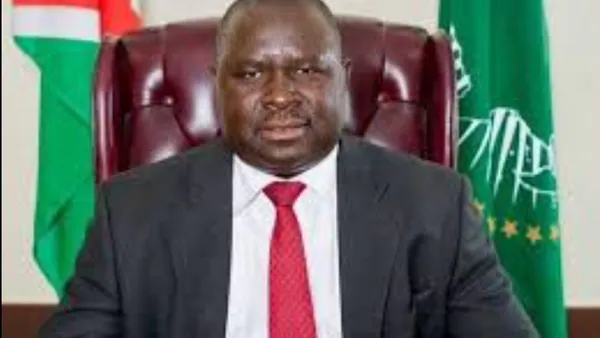
Who Is Adolf Hitler Uunona? Politician Named After Infamous Dictator Eyes Another Election Win In Namibia
Uunona gained international prominence in 2020, when he won the Ompundja constituency with 85% of the vote, securing 1,196 votes to his rival's 213. The constituency then counted only 2,520 registered voters, making his victory a commanding one.
Despite his steady political career, Uunona's rise to global attention came because of his name - identical to that of the German dictator responsible for one of history's darkest chapters.
Speaking to Bild, the Namibian politician firmly distanced himself from any association with Nazi ideology, saying he had "nothing to do" with it.
In earlier comments to BBC News, he explained how he was named:
“My father gave me this name Hitler, he didn't understand what the name Adolf Hitler stood for.... When I was young, it was just a normal name.”
He added that he only realised its historical weight later in life.
What is his political background?Adolf Hitler Uunona is a long-time member of the Swapo party, which has governed Namibia since independence in 1990. He is known locally as a fierce anti-apartheid campaigner and is respected in his constituency.
Swapo, originally born from Namibia's independence movement, has dominated national politics for decades. However, recent years have seen a drop in its support, partly due to bribery allegations involving the fishing industry.
Also Read | Communism vs far-right-No clear winner in Chile election; polls again next monthIn the last national elections, the party lost control of 30 major towns and cities, although it still maintains strong influence in many rural areas - including Ompundja.
Why do German links still appear in Namibia?Namibia's connection to Germany stems from its colonial past. Between 1884 and 1915, the country formed part of German South West Africa. During this period, the German Empire killed thousands of Nama, Herero and San people in what some historians call“the forgotten genocide”.
This legacy can still be seen today in German-named towns and small German-speaking communities across the country, BBC reported.
Also Read | Zambia starts pre-export checks of Indian medicines to curb entry of fake drugsEarlier this year, Namibia rejected a €10m reparations offer from Germany, calling for a“revised offer” to address the colonial atrocities of the early 20th century.
What happens next?With voters returning to polling stations, early signs indicate that Uunona's seat is safe. If re-elected, he is expected to continue his work within the regional council, even as his name continues to draw curiosity far beyond Namibia.
Legal Disclaimer:
MENAFN provides the
information “as is” without warranty of any kind. We do not accept
any responsibility or liability for the accuracy, content, images,
videos, licenses, completeness, legality, or reliability of the information
contained in this article. If you have any complaints or copyright
issues related to this article, kindly contact the provider above.


















Comments
No comment